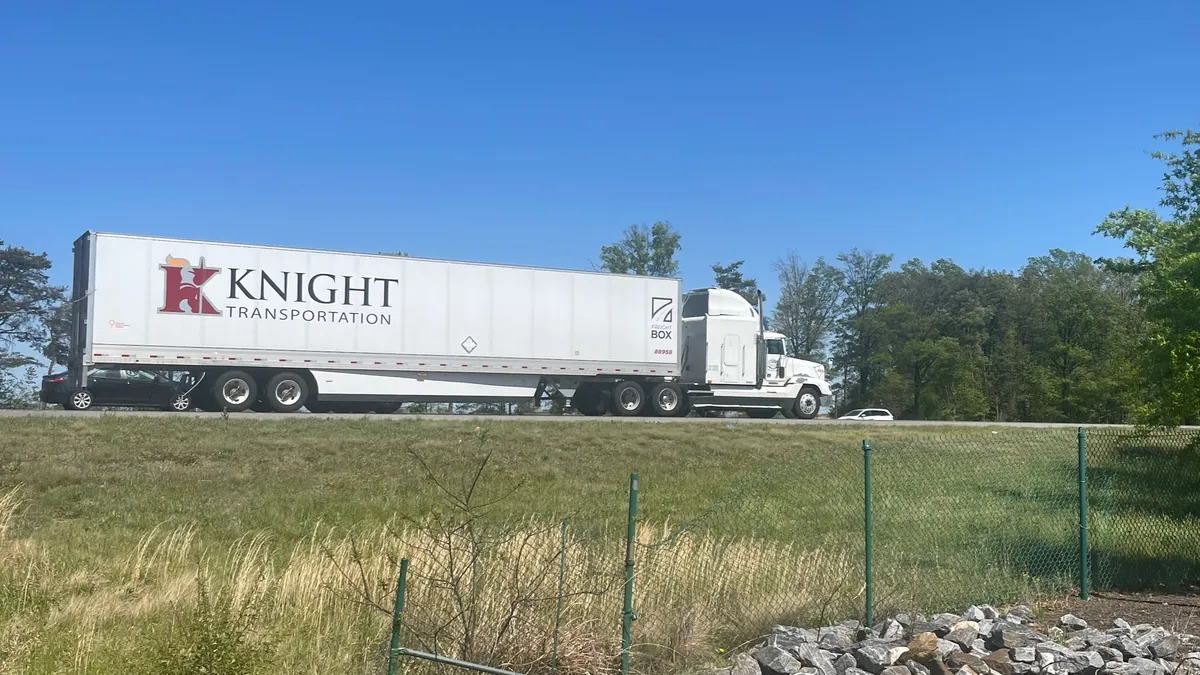Dive Brief:
- Knight-Swift Transportation Holdings’ operating income declined 51% in Q1, with executives noting an “unusually weak first quarter,” during an earnings call on Thursday.
- LTL was the carrier’s only bright spot; executives said strategic investments in that segment starting in 2021 helped it prepare for the bottom of the cycle that’s currently before the industry.
- “We recognize that we cannot entirely escape the cyclicality of the full truckload industry,” Knight-Swift CEO and President Dave Jackson said on the call. “But we have taken intentional steps for years to maximize our performance in every phase of the cycle.”
Knight-Swift segments take hits in Q1
Dive Insight:
Challenges kicked off 2023 for the industry as a whole with softer freight demand and declines in spot market rates and contract pricing, Knight-Swift CFO and Swift Transportation President Adam Miller noted on the earnings call.
While there’s usually a seasonal uptick in demand beginning in March, that wasn’t the case year. Such setbacks are leading Knight-Swift to expect deeper pressure on revenue per mile before it stabilizes and improves, which could be later than expected, Jackson said. Meanwhile, there’s been “unrelenting inflationary costs” without robust demand to offset them, he said.
But the company expects more ordinary supply chain flow in Q4 — with the industry not having overcapacity but significantly fewer trucks, drivers and trailers.
Other carriers have reported similar hardships, noting hits to truckload segments and other business areas. J.B. Hunt reported Monday that operating income dropped 17% to $277 million in Q1. Marten Transport saw Q1 declines YoY in half of its segments.
To diversify and improve resiliency, a key for Knight-Swift was its launch into LTL in 2021. Jackson also noted that truckload acquisitions, technology and diversification has helped mitigate the pressure of the bottom of cycles.
Its U.S. Xpress Enterprises acquisition will be one such factor to help Knight-Swift reach higher peaks when the cycle swings back, according to the company. It expects to close the transaction in early Q3.
Still, Knight-Swift’s third-party insurance business took a $23.8 million operating loss as small carriers struggled to pay premiums and unfavorable claims ensued, according to the company. That led Knight-Swift to decide to temporarily reduce its exposure there, effective at the start of Q2.
Despite the challenges, the company’s TL business navigated the softness well due to cost control and strong operational execution, Miller said.
“We continued to take steps to align our cost structure with the reduction in volumes and our cost per mile was essentially flat on a sequential basis,” Miller said. “Having a diverse group of brands and services, including roughly 4,600 dedicated trucks, provides us with flexibility and strategy.”













